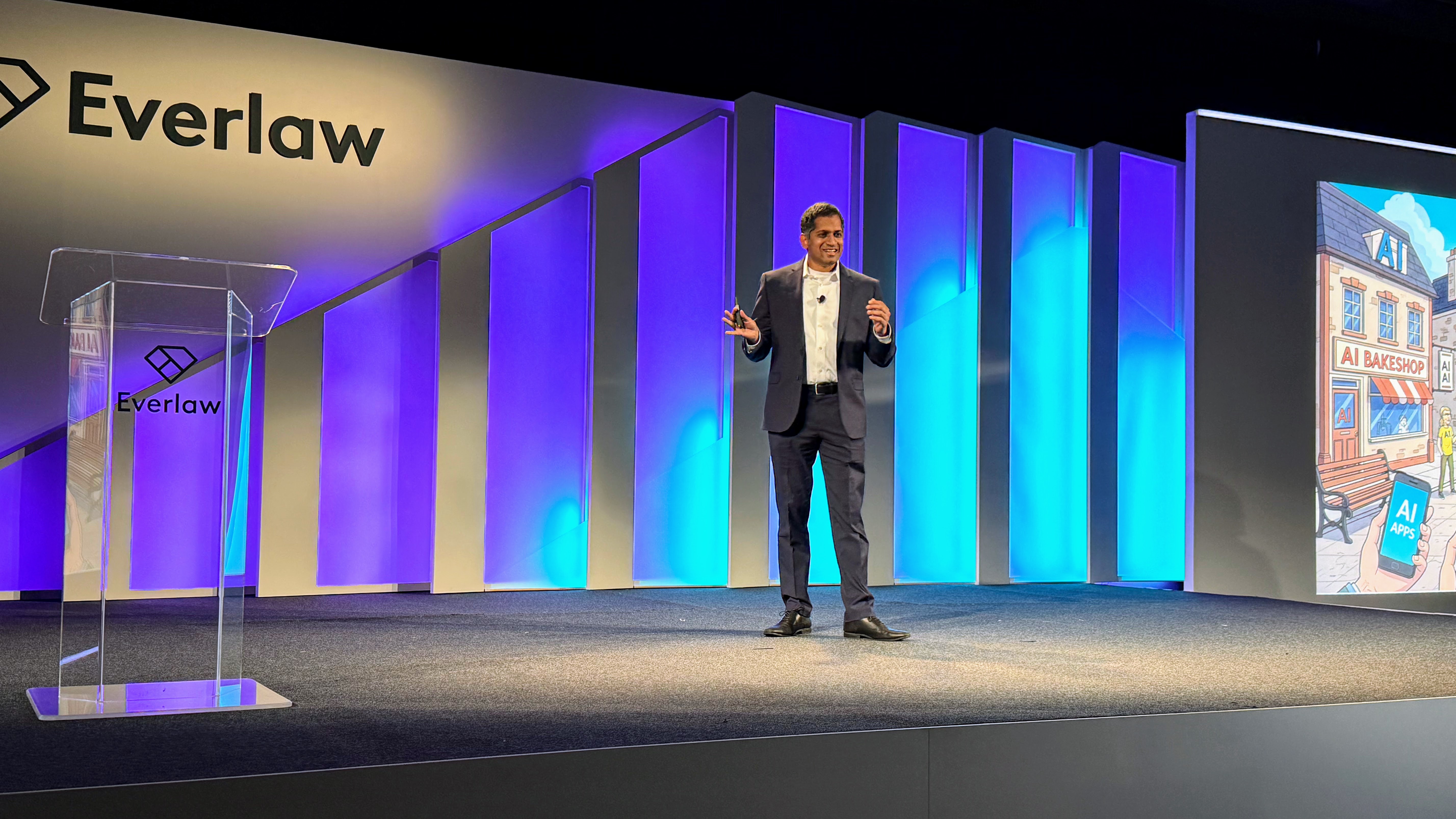AJ Shankar, CEO and founder of e-discovery company Everlaw, used the company’s annual Everlaw Summit in San Francisco to announce that Deep Dive, a new AI tool within the company’s platform that enables legal teams to ask questions across millions of documents, will reach general availability before the end of the year following a successful eight-month beta testing program.
The announcement, made during Shankar’s Oct. 22 keynote address, highlighted Deep Dive’s ability to allow legal professionals to ask complex, natural language questions across entire document collections – including terabytes of data across different file types.
I previously wrote about Deep Dive in August, after the company demonstrated the beta version at ILTACON.
During the beta program, which involved thousands of user queries, the average database size was 166,000 documents, with the largest matter successfully tested containing tens of millions of documents, Shankar said.
“The launch of Deep Dive ushers in a new era for legal discovery,” Shankar said in a press release announcing the news. “Deep Dive empowers legal teams of all areas to interrogate the entire corpus from day one, expediting insights and strategic fact-finding, then and throughout the lifecycle of a matter.”
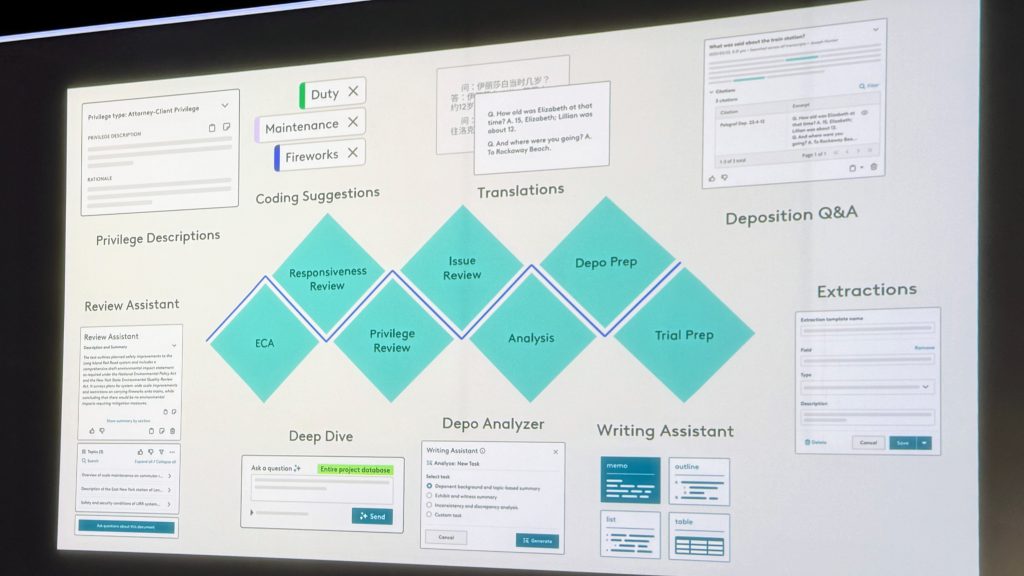
Shankar’s keynote included this slide, showing the array of Everlaw’s AI products and the e-discovery tasks for which they can be used.
Shankar emphasized that Deep Dive was designed specifically to reduce hallucinations by searching exclusively within the document corpus rather than relying on embedded knowledge.
Answers are ranked by confidence level and supported with lists of facts and referenceable resources. When insufficient evidence exists to answer a query, the system says so explicitly rather than generating unreliable content.
“Ask an LLM why the sky is blue, and it will use its embedded knowledge to answer,” Shankar said. “That’s not helpful when you’re trying to make an argument supported by hard evidence from within your discovery universe. Worse, if the LLM doesn’t know the answer, it may make something up.
“If you ask Deep Dive these questions, it will say that it cannot find evidence within the corpus to answer the question. By anchoring answers to specific facts present in their corpus, Deep Dive gives our users actionable intelligence.”
Significant AI Pricing Restructuring
Perhaps equally significant was Everlaw’s announcement of a major restructuring of its AI pricing model. Starting with the company’s October release, three key AI features – Review Assistant for single documents, Writing Assistant in Story Builder, and Deposition Analyzer – will be included in the core per-gigabyte rate at no additional charge. Despite adding these features, Everlaw is not increasing its per-gigabyte pricing.
The included features encompass translations, coding suggestions, summaries, extractions, sentiment analysis and Q&A capabilities, as well as memo writing, outline creation and deposition analysis. This is departure from Everlaw’s existing credit-based system for AI features.
“We know how hard it is for you to operationalize the use of these really powerful tools with a system where every usage is metered,” Shankar said. “We’ve been spending a lot of time in the last year on how we can make the experience better for you, on how we can give your teams more of the value we’ve built with Everlaw AI without charging you extra.”
Additionally, Everlaw announced a more than 40% price reduction for batch coding suggestions, one of its most popular batch AI actions. The company also introduced unified contracts that allow customers to access staging, drive-to-ECA, active and suspend functionality, and AI credits through a single agreement.
Beta Tester Experiences
According to several beta testers who spoke during the keynote to describe their experiences, Deep Dive’s capabilities provide advantages across the litigation lifecycle, including early case assessment for understanding core facts and testing hypotheses, production review for analyzing large data dumps and identifying gaps, and deposition or trial readiness for generating key facts and quotes based on actual case content.
Julie Brown, director of practice management at Vorys, an Am Law 200 firm, described the tool as “remarkably easy” to implement and “intuitive and user friendly.”
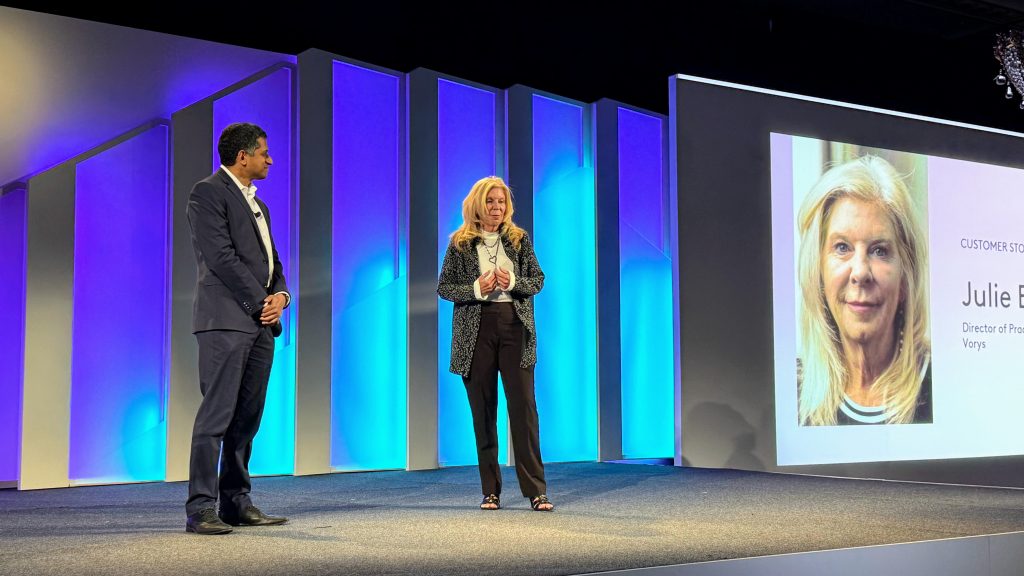
Julie Brown, director of practice management at Vorys, joined Shankar during his keynote to share her experience beta testing the new Deep Dive feature.
Brown highlighted three key use cases: investigations for identifying key people and events, quality control to catch documents missed by other review methods, and deposition and trial preparation.
In one notable example, her team used Deep Dive on a 2 million-document collection with a week-long production deadline, employing the tool as a quality control mechanism to identify potentially missed documents.
“The attorneys were just in awe when they saw the results,” Brown said, noting that in their first 300,000-document test case during deposition preparation, Deep Dive not only confirmed information the attorneys already knew but also identified new relevant documents.
Practical Applications
Another beta tester, Steve Delaney, director of litigation support at Am Law 200 firm Benesh, described his firm’s rigorous approach to implementing AI coding suggestions. Benesh has developed a systematic process that involves building targeted samples, iterating on prompts and using Story Builder’s drafts section to track all revisions and validation steps.
“The biggest takeaway is that if you haven’t started using coding suggestions yet, like do it, start, find a way to get yourself using it,” Delaney advised the audience of Everlaw customers. He emphasized that firms using AI tools now can gain competitive advantage. “You don’t get competitive advantage by doing what everyone else is doing.”
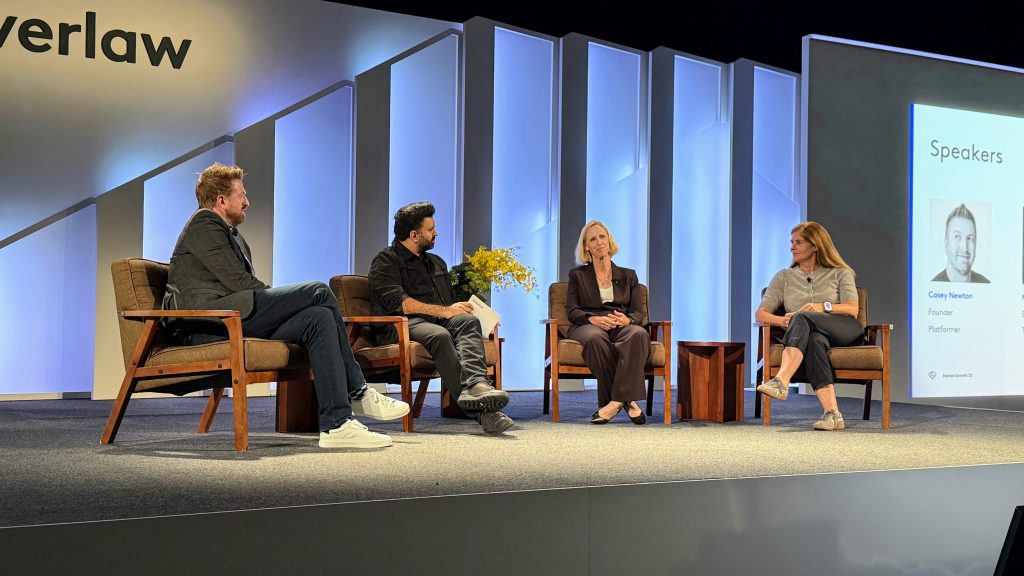
For a panel on how AI is impacting dispute resolution, technology journalists Casey Newton, founder of Platformer and co-host of The New York Times’ podcast “Hard Fork,” and Nilay Patel, co-founder and editor-in-chief of The Verge, interviewed Rebecca Delfino, associate professor of law at LMU Loyola Law, and Bridget May McCormack, president of the American Arbitration Association and former chief justice of the Michigan Supreme Court.
Ed Valio, director, eDiscovery and records management at Geico, described an unusual use case where his team needed to evaluate tens of thousands of contracts in 48 hours to answer a specific business question. By combining custom extractions, Review Assistant coding suggestions, and predictive coding, they identified just one relevant contract out of 50,000 and later pulled in related email traffic for context.
Deep Dive Pricing
Deep Dive will operate as a batch feature with a one-time per-gigabyte ingestion fee that provides unlimited questions for the lifetime of a case. Shankar emphasized that the pricing model gives customers control over when and how they deploy AI tools.
More than 250 customers currently use Everlaw’s suite of generative AI features, including federal customers and participants in the Everlaw for Good program serving nonprofits.
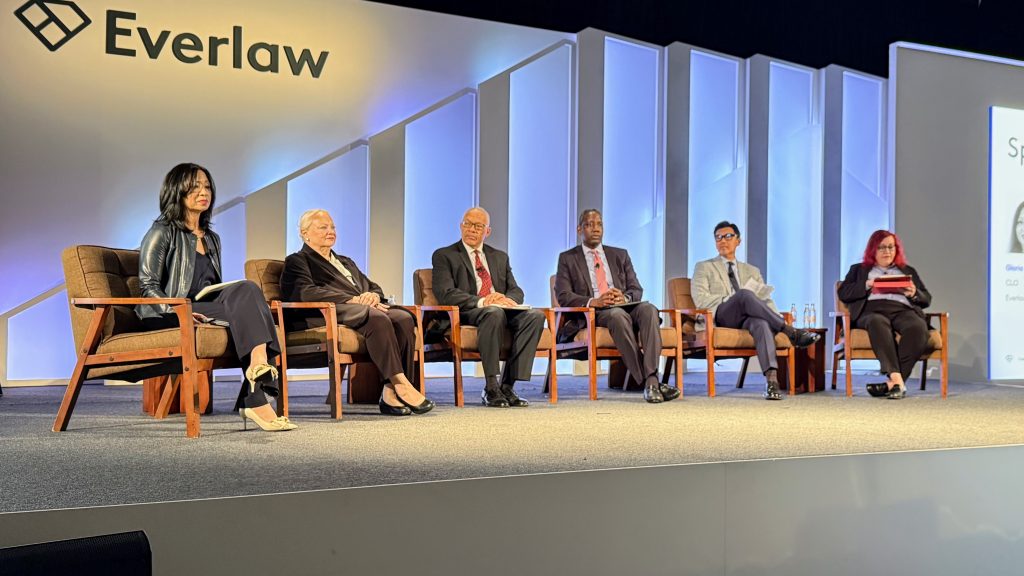
A panel of judges shared their insights on technology and the law. From left: Gloria Lee, chief legal officer, Everlaw, who served as moderator; Senior District Judge Joy Conti, W.D. Pa.; Judge David Cunningham, Los Angeles County Superior Court; Chief U.S. Magistrate Judge Willie Epps Jr., W.D. Mo.; U.S. Magistrate Judge Young B. Kim, N.D. Il.; and Judge Victoria Kolakowski, Alameda County Superior Court.
The keynote also included an early preview of Workflow Builder, a forthcoming tool designed to help legal teams construct and execute complex, repeatable workflows. While Shankar emphasized this is in the early development stage, the tool will allow users to orchestrate document flow through various Everlaw features, including AI capabilities, with automated triggering, conditional branching, and human approval gates.
“Instead of getting in the guts of Everlaw, you’re orchestrating outcomes,” Shankar said. “Your colleagues can step in at exactly the right time to add value in a defensible, repeatable way.”
Responsible AI Development
Throughout his presentation, Shankar emphasized Everlaw’s approach to responsible AI development, including protecting customer data from model training, minimizing hallucinations by focusing on document content rather than general legal knowledge, and conducting extensive beta testing before general releases.
The company’s Value AI team, composed of experienced legal professionals, is available to help customers navigate AI adoption challenges, including economics, functionality, firm policy, client approvals, and team training.
Everlaw continues to release new features on a monthly basis, with upcoming tools including a Depositions Q&A tool for comprehensive cross-deposition queries and a Privilege Descriptions tool for generating explanations of privilege designations.
Shankar emphasized that Deep Dive is designed to work as part of the broader Everlaw platform.
“Deep Dive is best used as one of many powerful tools in the Everlaw platform,” he said. “Combined with Coding Suggestions, Clustering and Story Builder, Deep Dive provides a strong platform for legal teams to drive successful outcomes.”
 Robert Ambrogi Blog
Robert Ambrogi Blog